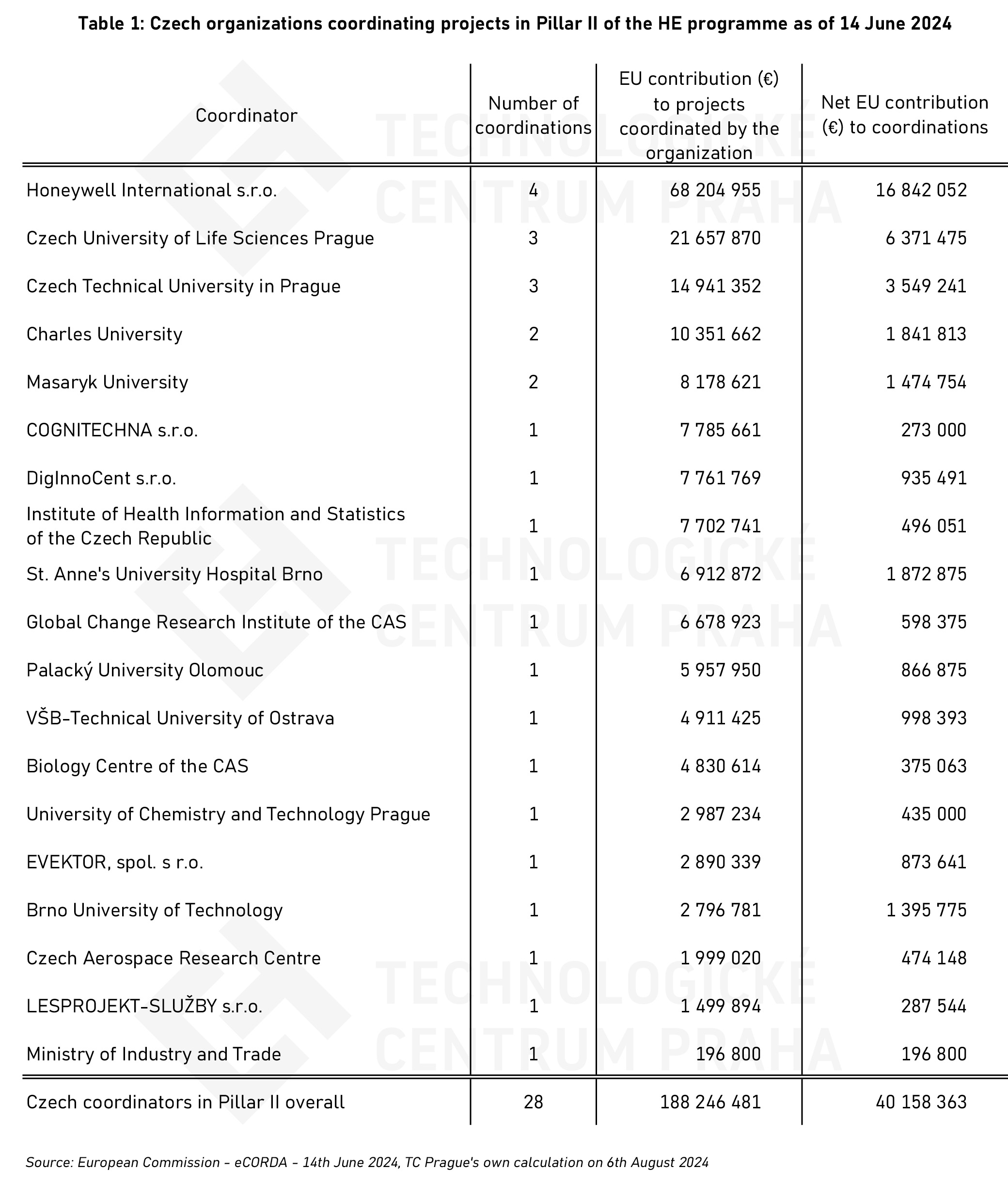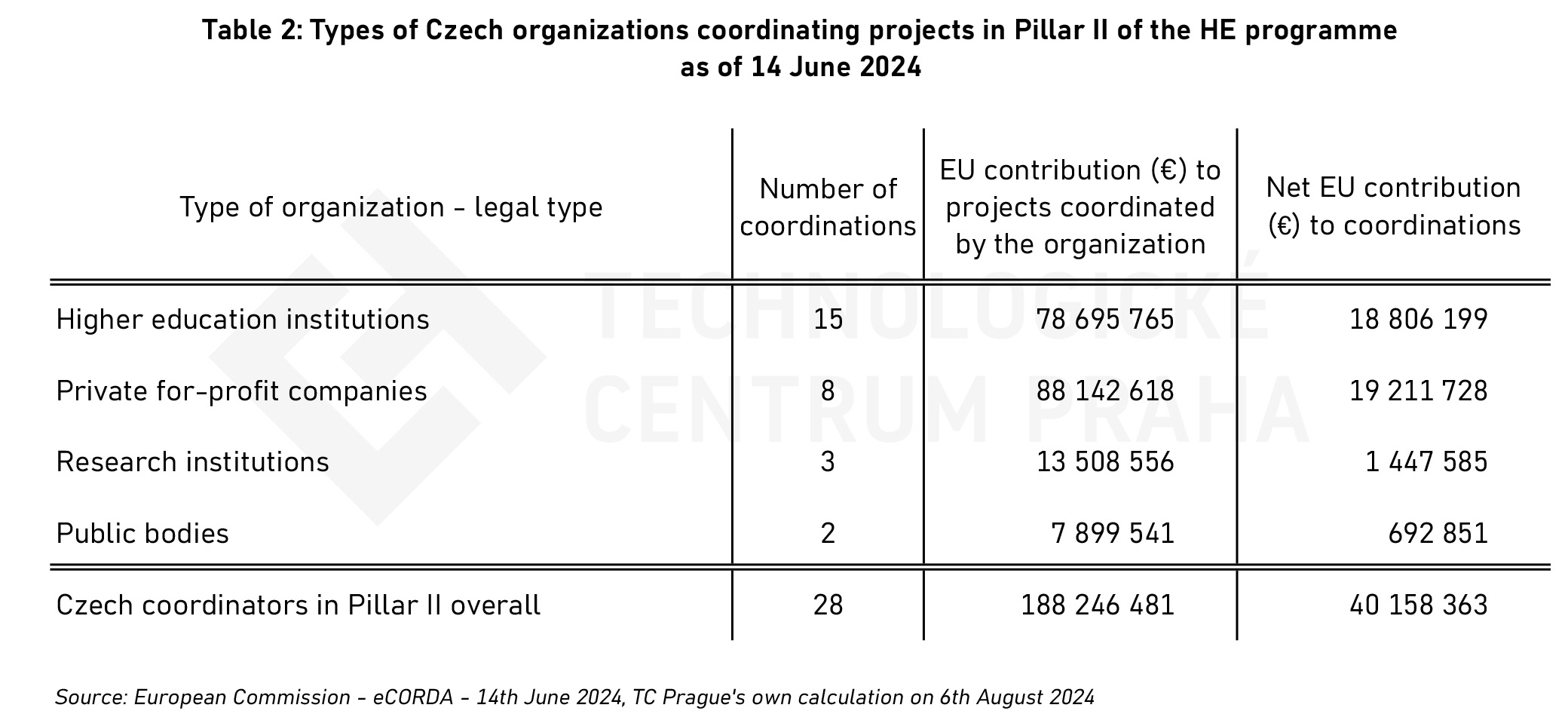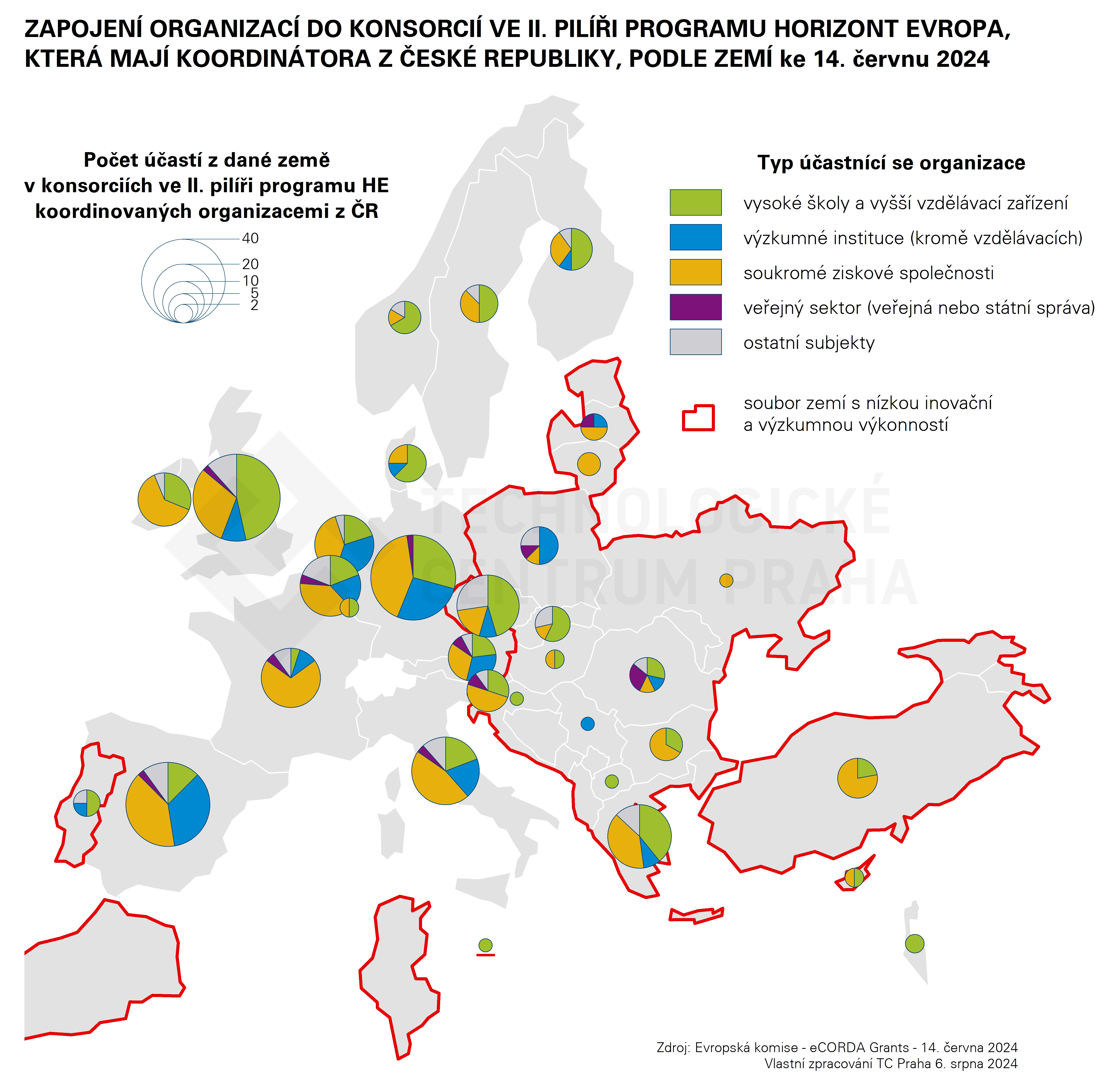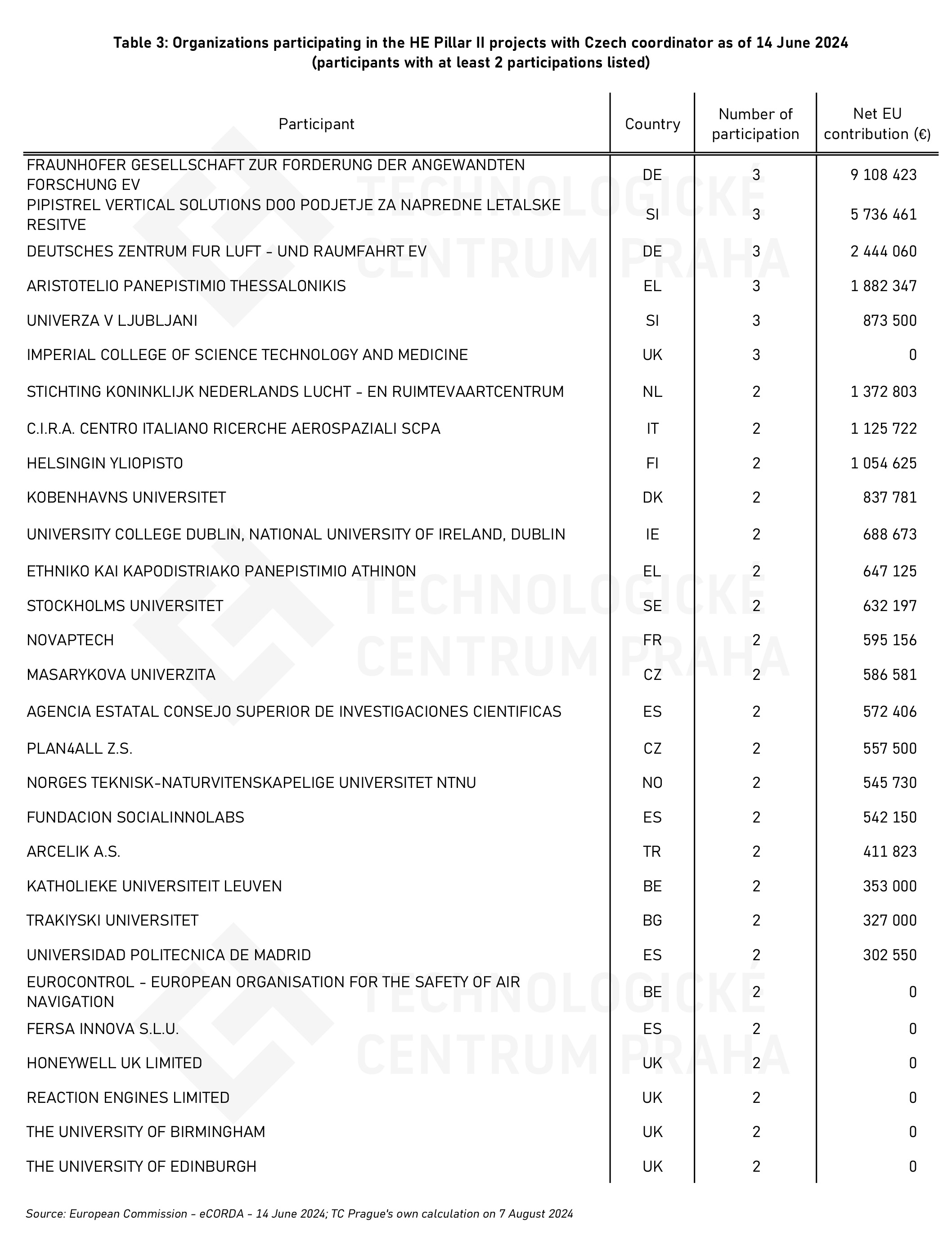Science|Business Widening Public Conference, 1st October 2024, Skopje, North Macedonia
09/08/2024

At the beginning of the summer holidays, we dealt with the involvement of Czech participants in Horizon Europe (hereinafter referred to as "HE") research consortia. We monitored the number of consortia in which Czech entities participate, the extent to which Czech entities participate in consortia led by leading European research organizations, and the attractiveness of Czech entities for foreign coordinators.
We will now reverse this task – we will look at participants involved in consortia led by Czech coordinators. For comparability with previous contributions from 27 June 2024 and 9 July 2024, we will again work exclusively with Pillar II Global Challenges and European Industrial Competitiveness.
As of 14 June 2024, the European Commission's eCORDA database recorded 636 Czech participations in Pillar II of the HE programme, including 28 coordinations led by 19 Czech organizations (Table 1). Overall, Czech organizations have coordinated projects in Pillar II of the HE programme with a total EU contribution of €188 million. Project coordination brought to Czech organizations a net EU contribution of €40 million. In terms of legal form, higher education institutions (15 coordinations, i.e. more than half) and enterprises (8 coordinations) dominated among Czech coordinators (Table 2). Those types of organizations accounted for 89% of the net EU contribution to Czech coordinators of projects in Pillar II of the HE programme.
Among the individual Czech organizations, Honeywell International s.r.o. (4 coordinations, i.e. half of the Czech corporate coordinations), the Czech University of Life Sciences Prague and the Czech Technical University in Prague (3 coordinations each) had the highest number of coordinations in Pillar II of the HE programme (Table 1). The coordination of projects in Pillar II of the HE programme brings Honeywell €16.8 million of net EU contribution, Czech University of Life Sciences €6.4 million and Czech Technical University €3.5 million.


In the 28 Pillar II projects of the HE programme led by Czech coordinators, a further 411 participants were registered as of 14 June 2024 (see the map diagram below), together claiming a net EU contribution of €148 million. The largest number of participants came from the UK (43 participations), Germany (41 participations), Spain (40 participations), Italy (26 participations) and Greece (23 participations). Regarding the UK's participation, it is worth adding that the UK's participating higher education institutions rank higher in the international QS ranking than their Czech counterparts. The Czech entities as participants reported 22 participations (with a claimed net EU contribution of €6 million). The highest net EU contribution was claimed by participants from Germany (€29.7 million), Spain (€14.4 million), France (€10.3 million), the Netherlands (€9.8 million) and Sweden (€8.4 million). Among the countries with lower innovation and research performance (so-called Widening countries), the countries most involved in projects coordinated by Czech organizations are, in addition to the aforementioned Greece (23 participations, €7.6 million), Slovenia (10 participations, €7.4 million), Turkey (9 participations, €2.3 million) and Poland (8 participations, €1.9 million).
By legal form, enterprises and higher education institutions were most often represented in the consortia led by Czech coordinators. Enterprises reported 161 participations and claimed a net EU contribution of €65 million. Higher education institutions were the second most represented type of institution with 125 participations and a net EU contribution of €36 million claimed. Research institutions were represented in consortia led by Czech organizations with 68 participations and a claimed net EU contribution of €35 million. The detailed structure of participation by legal form of participants is given in the map diagram below.

Note: Participation of organizations in the HE Pillar II consortia with a coordinator from the Czech Republic, by country as of 14 June 2024
Legend: Number of participations from particular country in the HE Pillar II consortia coordinated by Czech organizations. Legal type of participating organization – green: higher education institutions; blue: research institutions; yellow: private for-profit companies; violet: public bodies; grey: other institutions. Widening countries in a red outline.
Source: European Commission – eCORDA Grants – 14th June 2024; TC Prague’s own calculation 6th August 2024
We can also identify a certain repeatability among the organizations with which the Czech project coordinators cooperate in Pillar II (Table 3). 6 organizations reported 3 participations in projects led by Czech coordinators for each of them. These are e.g. the Fraunhofer-Gesellschaft or the German Aerospace Centre. A further 23 organizations reported 2 participations each. Among them we can also find leading European research organizations, e.g. the Catholic University of Leuven, the Norwegian University of Science and Technology (NTNU) or the Spanish National Research Council.

Summary:
In Pillar II of the HE programme, 19 Czech organizations are coordinating 28 projects with a total EU contribution of €188 million (as of 14 June 2024). The coordination brings €40 million to the Czech organizations. Half of the Czech coordination in Pillar II goes to higher education institutions (of which two fifths to the CTU and CULS), a quarter goes to companies (and of which half to Honeywell International s.r.o.). There are 411 other participations in 28 projects coordinated by Czech entities – most from the UK, Germany, Spain, Italy and Greece. By legal form, the most frequent participants are companies and higher education institutions. In consortia led by Czech entities, repeated participation of some of Europe's leading research organizations (e.g. the Fraunhofer-Gesellschaft, German Aerospace Centre, Catholic University of Leuven) can be identified.
Prepared by: Vladimír Vojtěch, TC Prague, vojtech@tc.cz, 12.08.2024
09/08/2024
08/08/2024
07/08/2024